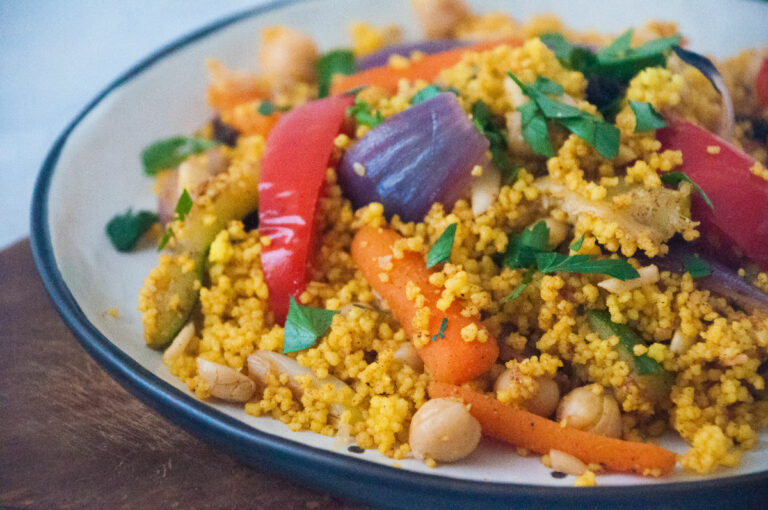Introduction: The Staple Food of Tunisia
Couscous is a traditional dish and a staple food of Tunisia, an African country known for its rich and diverse culinary heritage. Tunisians view couscous as a symbol of their national identity and a representation of their cultural heritage. It is a versatile dish that can be prepared in several ways using different combinations of spices, sauces, and vegetables. Couscous is often served at special occasions and family gatherings, but it is also a common dish that is consumed regularly.
Origin and History of Couscous
Couscous has been a part of North African cuisine for centuries. The dish is believed to have originated in the Berber regions of North Africa. The Berbers were nomadic people who lived in the desert and survived on dates, camel milk, and couscous. The dish made its way into Tunisian cuisine during the Arab conquests of North Africa in the 7th century. The Arabs brought with them a variety of spices and ingredients that were incorporated into the traditional couscous recipe, giving it a unique Tunisian flavor.
Nutritional Value of Couscous
Couscous is a nutritious dish that is rich in carbohydrates, fiber, and protein. It is made from semolina wheat, which is a good source of complex carbohydrates that provide energy and help maintain blood sugar levels. Couscous is also high in fiber, which aids digestion and keeps you feeling full for longer. Additionally, couscous contains essential vitamins and minerals, such as vitamin B6, iron, and zinc.
Popular Couscous Dishes in Tunisia
Tunisian cuisine features a variety of couscous dishes, each with its unique flavor and ingredients. Some popular couscous dishes in Tunisia include couscous with lamb, chicken, or fish, flavored with spices like cumin, coriander, and turmeric. Couscous is often served with a rich tomato-based stew called “harissa” or with a variety of vegetables like carrots, onions, and zucchini.
Couscous and Tunisian Culture
Couscous is an essential part of Tunisian culture, and its significance goes beyond just being a dish. It is a symbol of hospitality, generosity, and family values. In Tunisian households, it is common for large families to gather around a big plate of couscous, sharing it together. Tunisians also believe that couscous has magical powers and is associated with good luck and prosperity.
Conclusion: Significance of Couscous in Tunisian Cuisine
Couscous is more than just a dish in Tunisian cuisine. It is a cultural icon that represents the country’s rich heritage, traditions, and values. Its versatility and nutritional value have made it a popular dish worldwide, but in Tunisia, it remains an essential part of daily life. From the way it is prepared to the way it is served, couscous is deeply ingrained in Tunisian culture, and its significance cannot be overstated.

